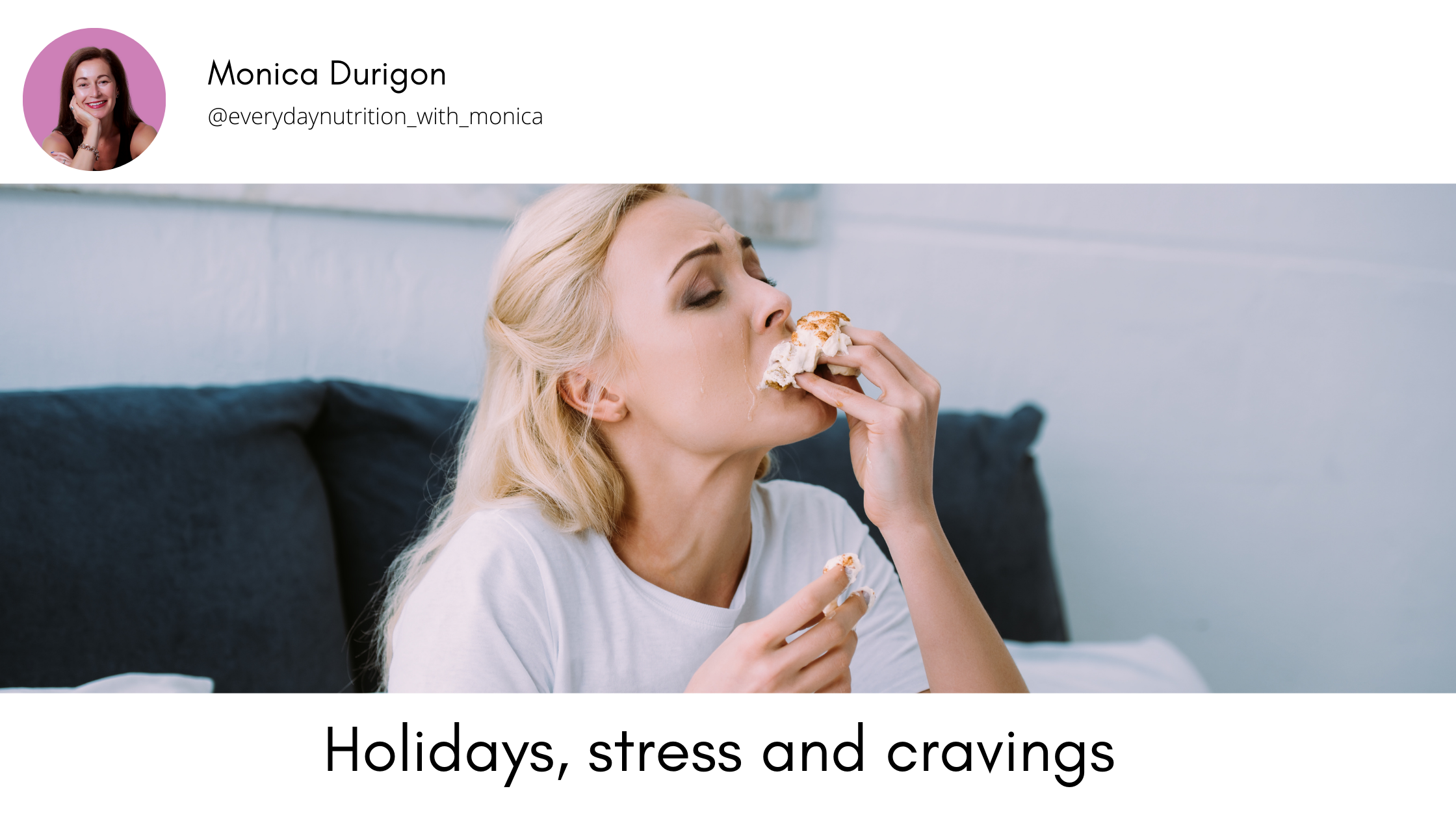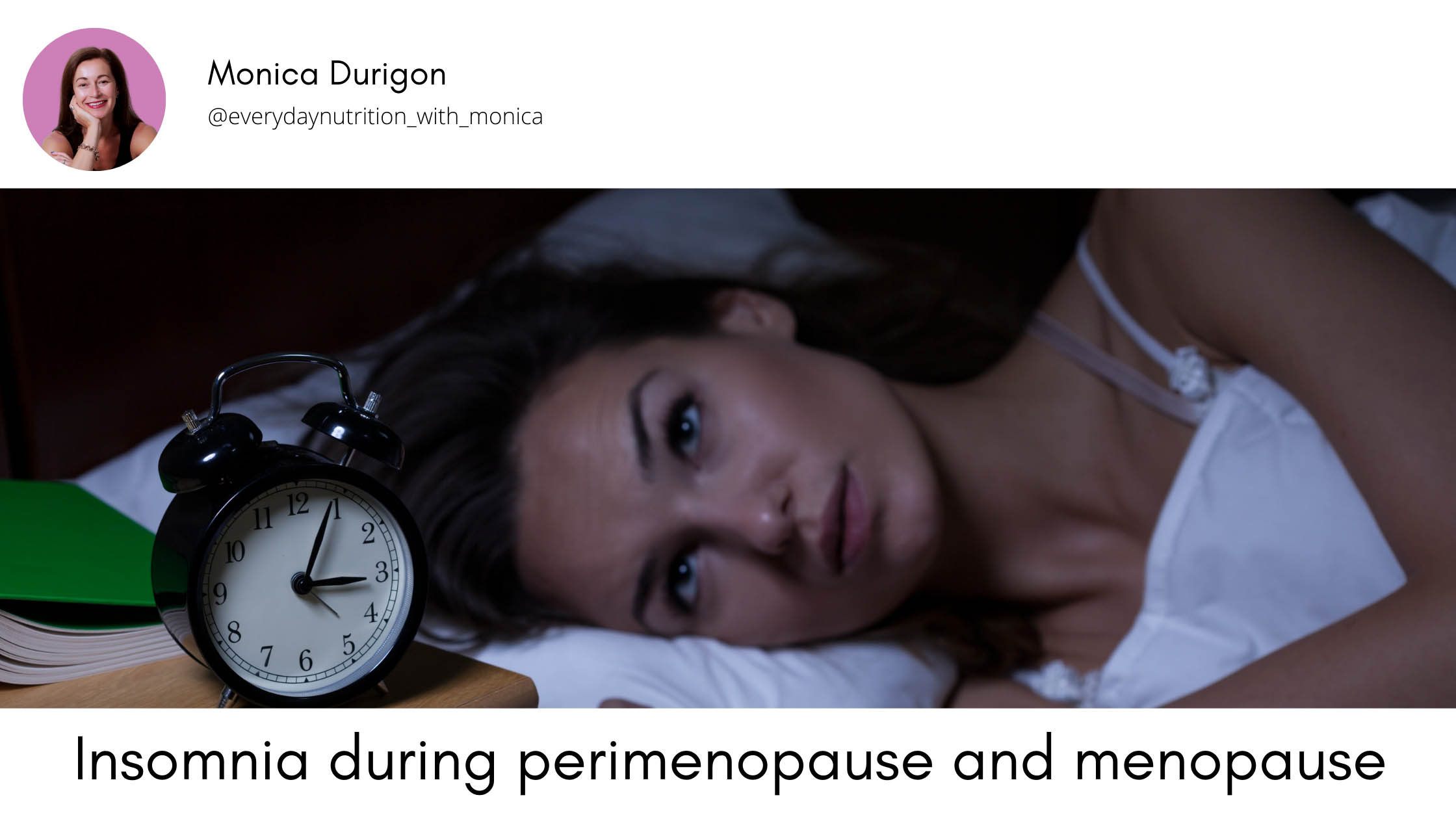As women we often feel a sense of obligations toward others and during the holiday this gets magnified.
We are trying to do it all, the shopping, the food preparation, the presents, the decorations, the parties, the drinks, the cards …you name it … we put a lot on our plate and if you are a type A personality and I know many of you are… you are trying to do it all and do it perfectly.
Or, if we are people pleasers, we have a huge problem setting boundaries and saying no …we end up feeling very stressed. And what should be the merriest time of the year can quickly turn into the most stressful time of the year!
Being stressed is not fun and it comes with many unhealthy side effects and one of those is that it drives many of us to rely on food for comfort.
Stress leads to negative emotions or feelings of emotional void and we often turn to food because we believe that food will fill that void or comfort our negative emotions and …temporarily… it does comfort us. The problem is that it is only a fleeting victory which costs us a lot because emotional eating sabotages our health and weightloss goals, making it very difficult for us to progress in our journey.
This behavioral pattern is often difficult to change because it might have its roots in our childhood. Many of us might have been brought up thinking that food is comfort and that eating is the end of all problems…certainly this is something that I am very familiar with , in my Italian family, food is something that is used to diffuse difficult feelings, problems, confrontations …
Negative coping mechanisms

What also contribute to us turning to food for emotional wellbeing is the fact that when we are stressed and feeling low, empty or exhausted we tend to do less of what we need more:
For example:
We don’t reach out for help from the meaningful people in our life, because we are feeling low, because we don’t want to bother them, because we worry about showing our vulnerability … I know this too was a big one for me… more on this in the future, because this is a very important topic especially for my type A personality ladies.
When we are stressed or low, or feeling empty and tired, we tend to do less of what we need more.. what we typically neglect to do are those activities which in fact relieve stress …And we increase what we don’t need : the negative self talk, the emotional eating or the drinking to make us forget even temporarily how we are feeling.
Another important factor in emotional eating is that many of us still don’t know how to differentiate between emotional and physical hunger.
And top of all of this, when we feel fatigued and overwhelmed , our body’s biological landscape changes and encourages the secretions of cortisol, the stress hormones, which will increase cravings.
So what to do about it , especially during the holiday seasons when we will be busy, confronted with stressful situations ( i.e. family gatherings are often a hge trigger for many ) and surrounded by many many temptations ?
How to distinguish between physical and emotional hunger

Let’s start by discussing some simple guidelines on how to distinguish between physical and emotional hunger
There are two aspects of your hunger that I invite you to observe:
- When and how your hunger start
- How do you feel after you have eaten
Physical hunger develops slowly, typically in a person who has balanced blood sugar levels, it will start rising after 4 hour of not eating and will rise gently.
Emotional hunger will show up suddenly and will hit you big time! …it is not a gentle affair …
Another difference is the type of food you desire to eat.
With physical unger you want a variety of foods but when you experience emotional hunger you typically desire only certain types of foods.. Ie the biscuits, the chocolate, the crips, the pizza… I am sure that by now, you all know which is our go to comfort food.
Physical hunger is satisfied with a sensation of fullness but emotional hunger is difficult to satisfy and can turn into binge eating without having the sensation of fullness.
When we eat for physical hunger we don’t “beat ourselves up” whilst when we eat for emotional gain, afterwards we are also “gifted” with some of the worst feelings : guilt and shame!
So, what we actually did to make us feel better, make us, in fact, feel even worse !
STEP 1: Observe your hunger and try to understand if it is indeed a need for food and nourishment or a need to lift you away from stress and negative emotions.
In my next blog I am going to give you 5 tools you can use to curb your emotional hunger so that it will not sabotage your health and weightloss goals especially during the holiday season when temptations are all around us!
Watch out for the next blog called Cravings’ SOS.
With love, energy and care






0 Comments